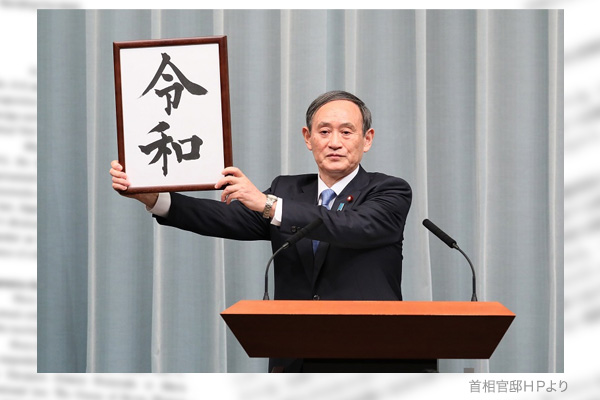A new era name was announced amid a nationwide fever in Japan, brushing away concerns about a tendency to avoid using the imperial era name or “gengo.” The new era name replacing current Heisei is Reiwa, chosen from Japan’s oldest collection of poems known as the Man-yo-shu. Prime Minister Shinzo Abe described the name as implying “culture coming into being and flourishing when people bring their hearts and minds together in a beautiful manner.”
This is a very wonderful era name. Most Japanese people seem to have welcomed it. I hope that the incoming Japanese emperor and people would walk together toward an ideal to build a new era.
Given imperial tradition and Era Name Act…
Given the tradition of the imperial family and the spirit of the Era Name Act, however, deciding and announcing the new era name before the scheduled enthronement of the new emperor are problematic. This is the reason I cannot be openly happy with the new era name.
According to the imperial tradition, most of the past emperors had set new era names in consideration of their respective ideals and desires for their respective eras after their enthronement since the Nara period in the eighth century. The tradition features a new era name decided after the enthronement of a new emperor. A new era name had never been set before the enthronement. Nevertheless, the new era name of Reiwa was decided and announced before the new emperor is enthroned. This runs counter to the tradition of the imperial family.
The procedure for Reiwa also runs counter to the spirit of the Era Name Act.
The act stipulates that the era name shall be revised only when the throne is succeeded. In other words, the era name should be revised after an imperial succession. Nevertheless, the new era name was decided and even promulgated before an imperial succession. This may be problematic.
Furthermore, the new emperor should promulgate the new era name according to the principle of “one era name per emperor” since the Meiji Era (1868-1912). Nevertheless, incumbent Emperor Akihito effectively promulgated an era name for the second time. One emperor’s promulgation of two era names may run counter to the principle.
Commendable prior reporting of new era name to emperor and crown prince
Earlier media reports suggested the government might report the new era name to Emperor Akihito and Crown Prince Naruhito prior to an official cabinet decision on the name. Undoubtedly, the reporting was done at least before the public announcement. The prior reporting may be commendable.
I am concerned that the one-month lapse between the announcement and implementation of the new era name could disrupt people’s lives. I would have preferred to hearing the announcement of the new era name upon the succession.
The new era name will be implemented on May 1. However, some people may erroneously begin to use the new era name now or get confused whether to use the present or new era name. The government should take appropriate measures to prevent such confusion.
Akira Momochi is a director of the Japan Institute for National Fundamentals and a special professor at Kokushikan University.


